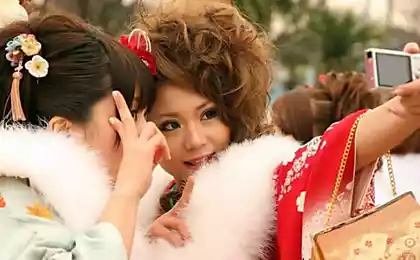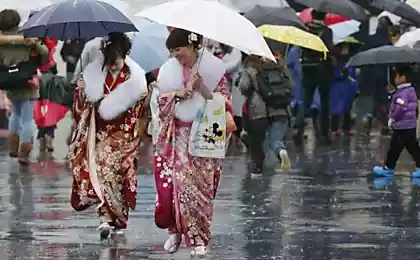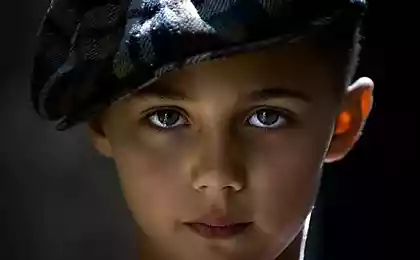18256
Coming of Age Day
Japan's national holiday - Day of age, celebrated in Tokyo. Traditionally, it is celebrated on the second Monday of January. On this day, they are invited to the regional and municipal management, where heads of administrations give them instruction in "how to behave in adult life".
Adulthood in Japan reached 20 years of age, from that moment, local residents have the right to vote, to make the real estate business and many other things that were not previously permitted.
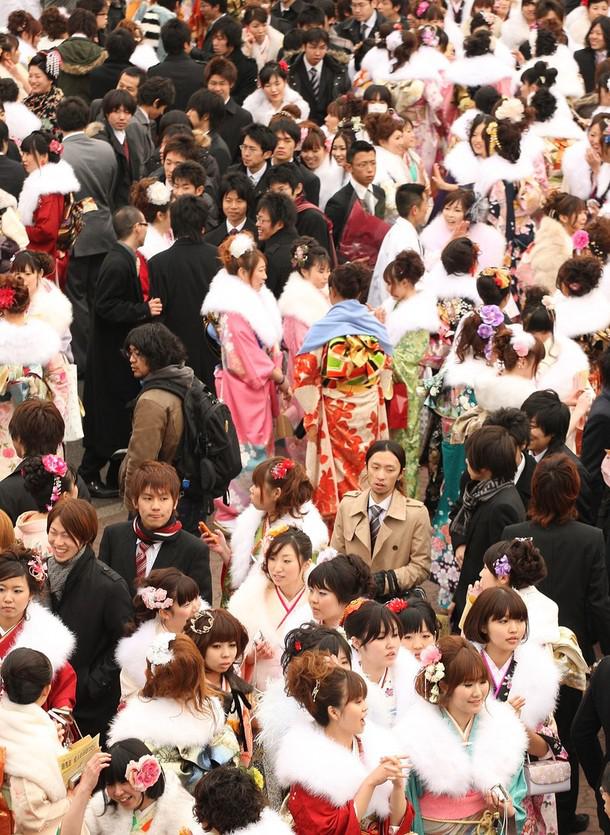
In Japan, the majority say the person who last year celebrated its 20th anniversary.
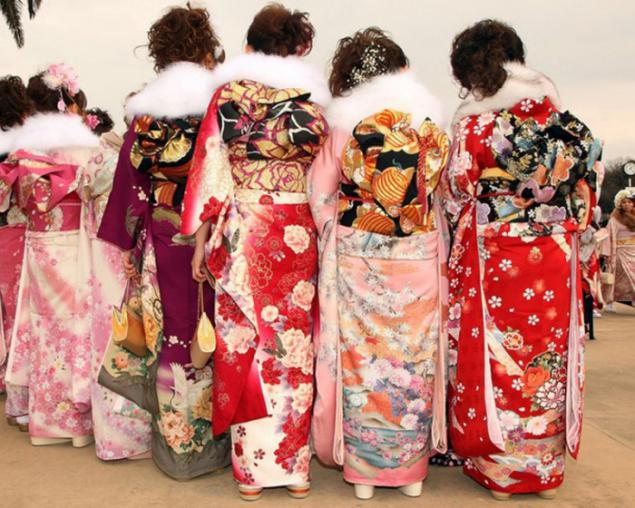
Until the middle of the XIX century Japanese boys and girls become adults at different times.
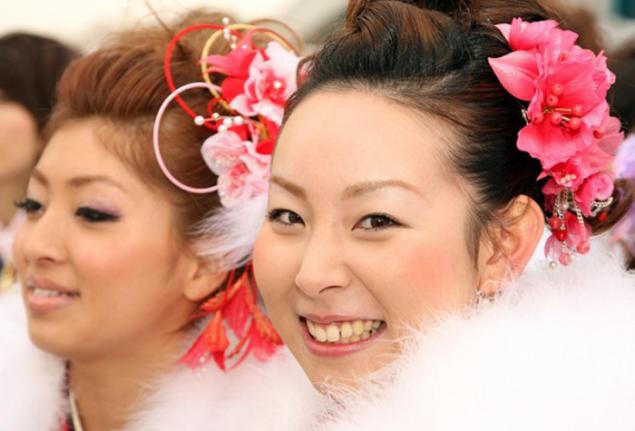
Previously senior girls using for the first time put on a kimono adult cut, black teeth, shaved eyebrows.
Boys shaved curls over the forehead and braided pigtail (eboshi, haircut adult male). At the same time he changed the name of the child to the adult.
This ceremony is called Mogi. Upon completion of the boys and girls are considered adults and are able to marry.
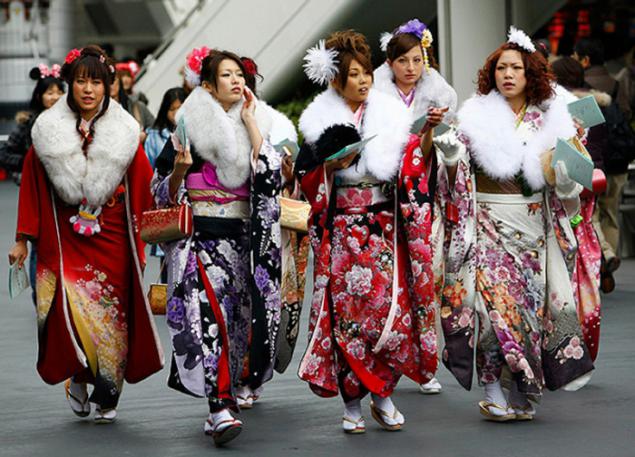
Since 1876 the age of majority by the Japanese government has been established in 20 years, but the official holiday was established only in 1948, and until 2000 was celebrated on January 15.
In 2000 it was moved to the second Monday of January, giving thus three days off in a row.
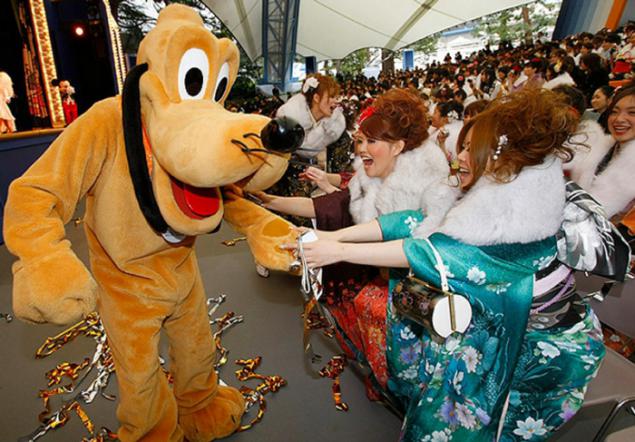
Heads of local administrations in this day hold seydzin shiki - the official ceremony for the newly-adult. Her boys and girls congratulate politicians and local celebrities who pronounced parting speech, reminiscent of civic duty, new rights and obligations and give gifts.
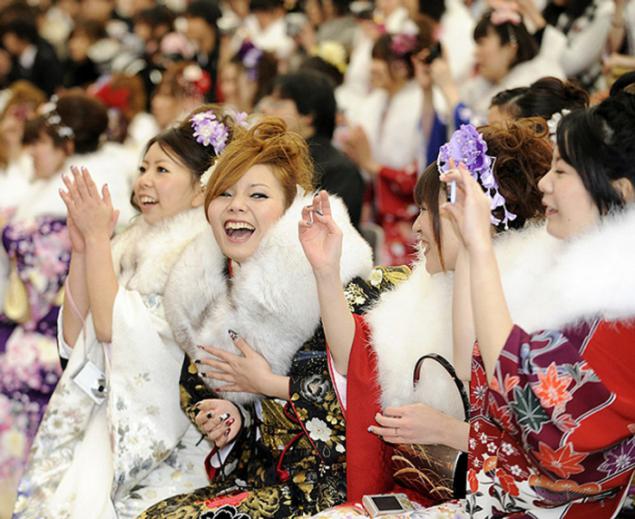
Traditionally, the 20-year celebrants go to the temple, where they pray to the gods and make wishes. In the Meiji Shrine in their honor arranged momote shiki - ritual archers, which opened two priests dressed in white. They allowed two blunt arrows, published in flight whistle. After releasing their arrows brightly dressed archers.
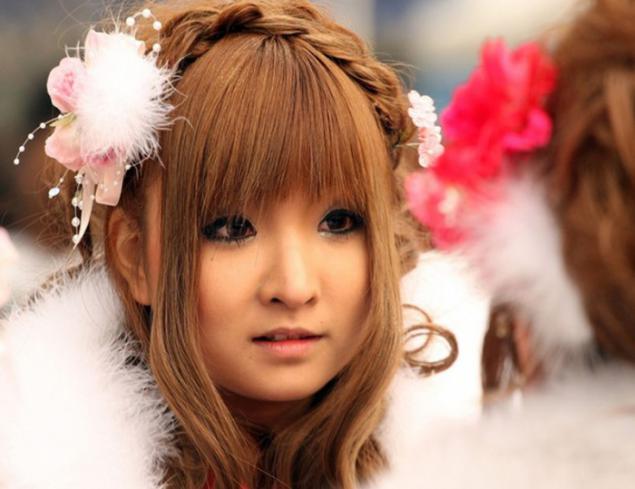
After all the ceremonies, rituals and lectures for students, the celebration culminates in bars, restaurants or karaoke.
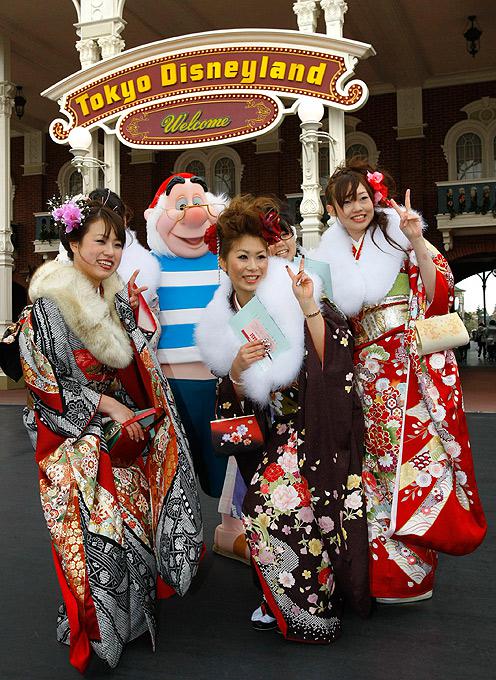
Celebrates its age Japanese kimono dress expensive winter special cut with long sleeves - Furisode.
Other components of the costume - fur cape, obi, which is tied a particular node, traditional zori slippers and a small bag, which contains the perfume and cosmetics.
Expenses for this outfit comparable to buying a new car, so preparing for the holiday starts in a few years, or take a kimono rental.
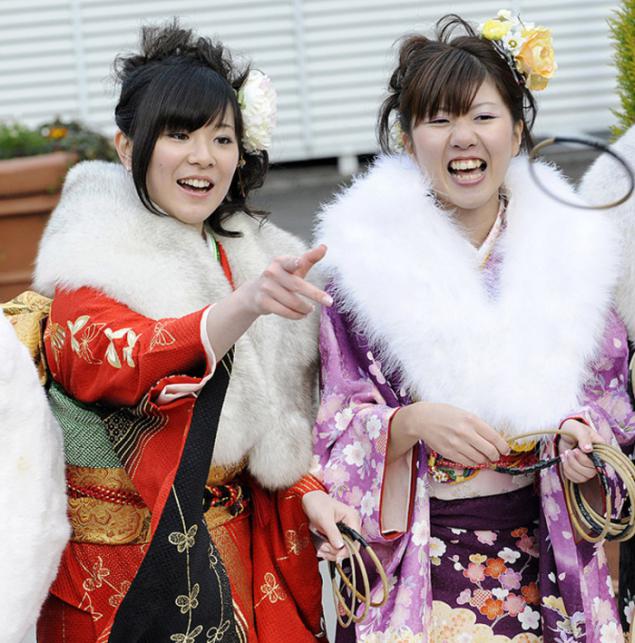
Boys on this day clothed in European costume, either in traditionally male kimono haori jacket.
Because of the current Western-style clothes in Japan virtually supplanted the traditional of daily use, then bought a kimono then hardly ever used. In many families it is inherited.
20-30 years ago, this ritual evoked sharp rejection among young people, among which in those days were very popular leftist ideas, and everything that comes from the government, without exception, was perceived as a "reactionary».
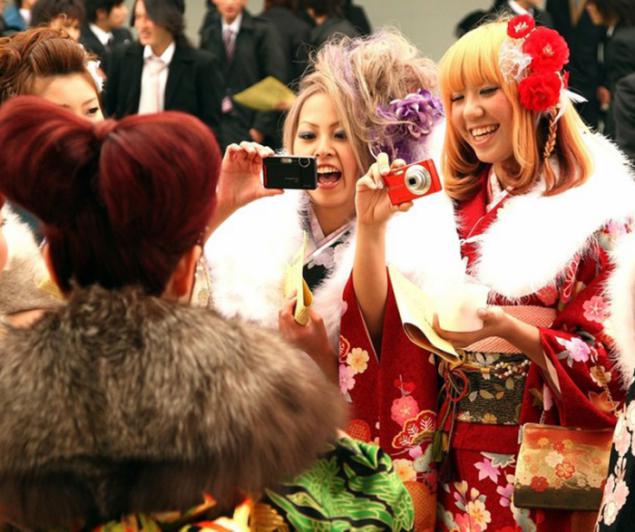
According to his contemporaries, in those days the young people who dared to come to the party in the municipal offices, were ridiculed and ostracized.
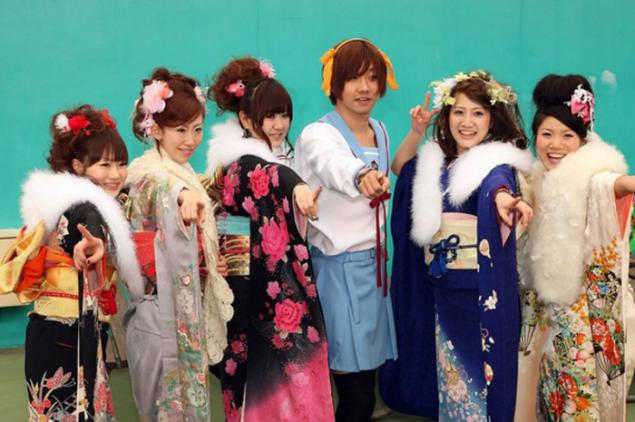
In the cities, the number of participants in official ceremonies was negligible, but in rural areas the tradition (and discipline) were stronger.
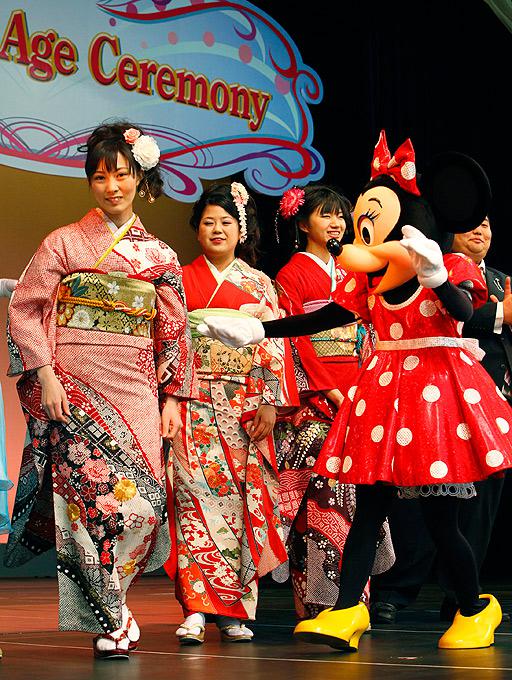
Today, the majority of the Japanese population is sufficient apolitical and free from any kind of ideology was, and this festival has become the overwhelming majority in an extra day off.
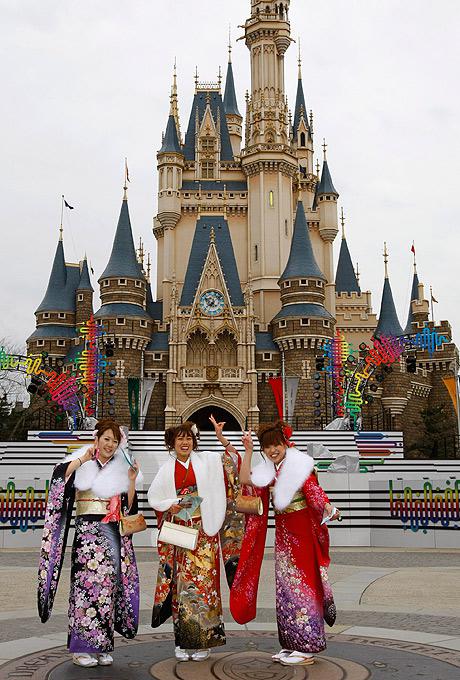
Perhaps a direct interest in the festival majority are young girls who have reached the age of 20. For them, it is an occasion to show off, going with her friends to the district council and back in a beautiful traditional dress.
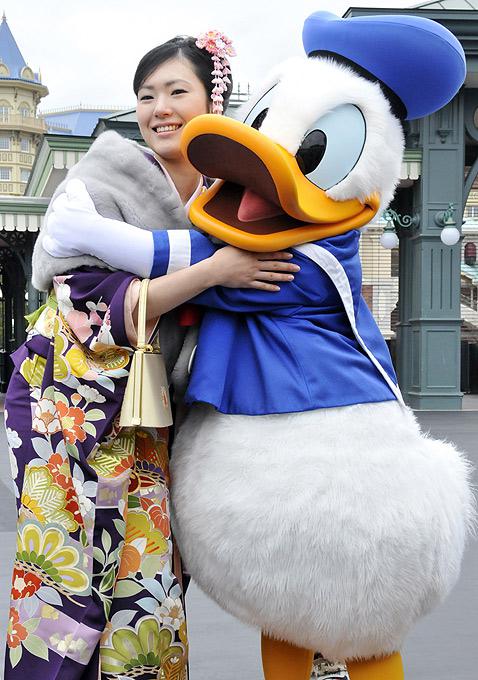
Since the festival is held in mid-January, when in Tokyo is pretty cool, in the last few years, especially among girls became fashionable to wear on the shoulders of the kimono top luxury fur coats.
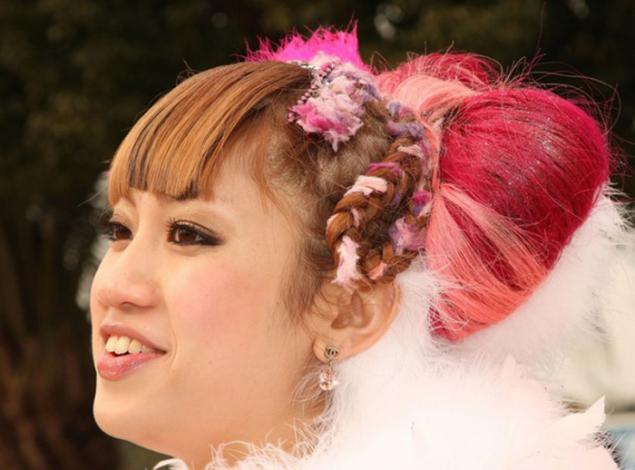
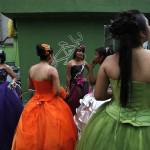
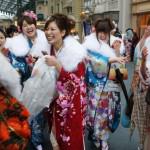
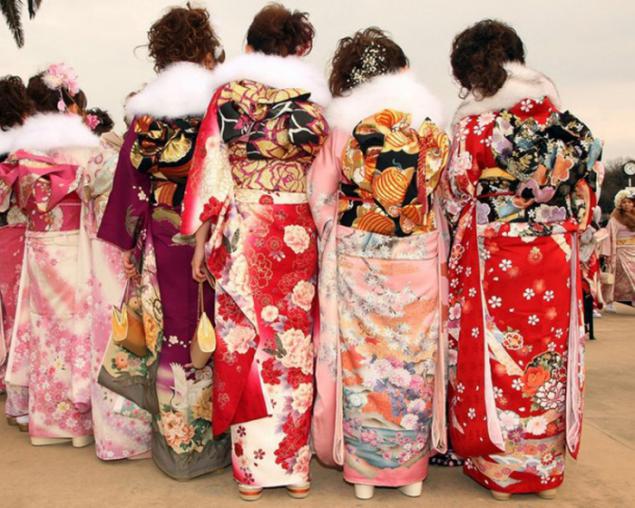
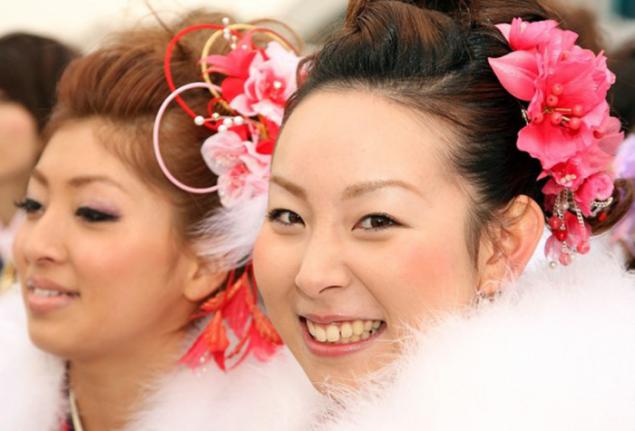
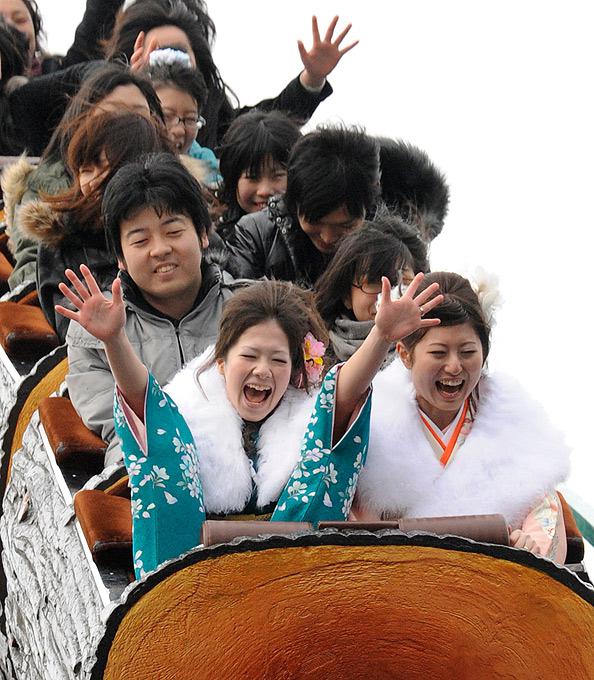
©
Adulthood in Japan reached 20 years of age, from that moment, local residents have the right to vote, to make the real estate business and many other things that were not previously permitted.

In Japan, the majority say the person who last year celebrated its 20th anniversary.

Until the middle of the XIX century Japanese boys and girls become adults at different times.

Previously senior girls using for the first time put on a kimono adult cut, black teeth, shaved eyebrows.
Boys shaved curls over the forehead and braided pigtail (eboshi, haircut adult male). At the same time he changed the name of the child to the adult.
This ceremony is called Mogi. Upon completion of the boys and girls are considered adults and are able to marry.

Since 1876 the age of majority by the Japanese government has been established in 20 years, but the official holiday was established only in 1948, and until 2000 was celebrated on January 15.
In 2000 it was moved to the second Monday of January, giving thus three days off in a row.

Heads of local administrations in this day hold seydzin shiki - the official ceremony for the newly-adult. Her boys and girls congratulate politicians and local celebrities who pronounced parting speech, reminiscent of civic duty, new rights and obligations and give gifts.

Traditionally, the 20-year celebrants go to the temple, where they pray to the gods and make wishes. In the Meiji Shrine in their honor arranged momote shiki - ritual archers, which opened two priests dressed in white. They allowed two blunt arrows, published in flight whistle. After releasing their arrows brightly dressed archers.

After all the ceremonies, rituals and lectures for students, the celebration culminates in bars, restaurants or karaoke.

Celebrates its age Japanese kimono dress expensive winter special cut with long sleeves - Furisode.
Other components of the costume - fur cape, obi, which is tied a particular node, traditional zori slippers and a small bag, which contains the perfume and cosmetics.
Expenses for this outfit comparable to buying a new car, so preparing for the holiday starts in a few years, or take a kimono rental.

Boys on this day clothed in European costume, either in traditionally male kimono haori jacket.
Because of the current Western-style clothes in Japan virtually supplanted the traditional of daily use, then bought a kimono then hardly ever used. In many families it is inherited.
20-30 years ago, this ritual evoked sharp rejection among young people, among which in those days were very popular leftist ideas, and everything that comes from the government, without exception, was perceived as a "reactionary».

According to his contemporaries, in those days the young people who dared to come to the party in the municipal offices, were ridiculed and ostracized.

In the cities, the number of participants in official ceremonies was negligible, but in rural areas the tradition (and discipline) were stronger.

Today, the majority of the Japanese population is sufficient apolitical and free from any kind of ideology was, and this festival has become the overwhelming majority in an extra day off.

Perhaps a direct interest in the festival majority are young girls who have reached the age of 20. For them, it is an occasion to show off, going with her friends to the district council and back in a beautiful traditional dress.

Since the festival is held in mid-January, when in Tokyo is pretty cool, in the last few years, especially among girls became fashionable to wear on the shoulders of the kimono top luxury fur coats.






©

